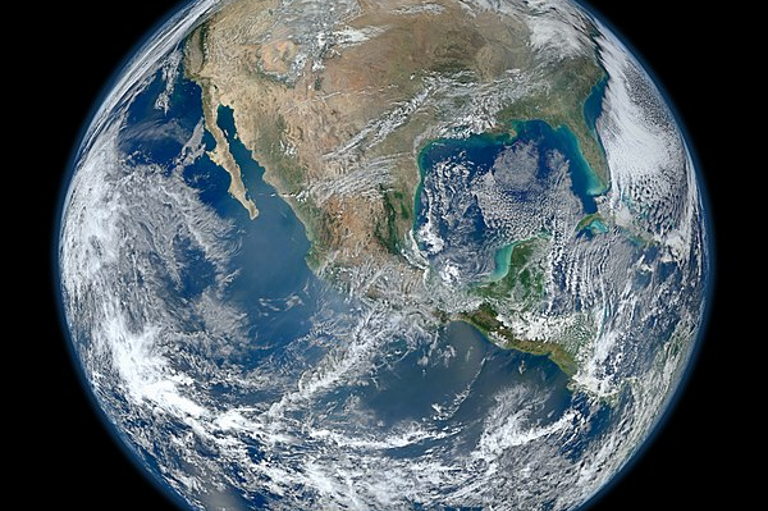Herman Daly, the dean of the steady-state economists, died recently at age 84. His view that the Earth could only support a steady-state economy in the long run—rather than the perpetual growth economy imagined by most of those alive today—was based on an understanding he came to early in his career. As a doctoral student Daly became convinced that the economy was a system like any other in the universe and therefore governed by physical laws.
So here are three important things I learned from reading Herman Daly and hearing him once at a conference long ago:
- The economy is a subset of the natural world and as such is governed by the laws of the natural world. Daly was particularly focused on the Second Law of Thermodynamics, also known as the Entropy Law, which establishes that we live a universe in which the distribution of energy and matter are becoming more and more disordered. That is the meaning of entropy, and this disorder will ultimately lead to the heat death of the universe. (Don’t worry; this scary-sounding heat death is theorized to be 10100 years away.) The practical significance of this realization is that human society is “using up” Earth’s nonrenewable resources in the sense that resources:
- Are being made into objects or products which erode and deteriorate over time thus scattering nonrenewable resources unintentionally.
- Are scattered intentionally (think: phosphate rock fertilizers).
- Are burned (think: fossil fuels).
Once scattered or burned, they cannot be economically retrieved for reuse. That is, these processes cannot be reversed (except locally by creating more entropy).
To build a civilization that could remain functioning indefinitely, we humans would have to 1) live in a way that does not exploit renewable resources faster than they can be replenished (think: trees and fish), 2) use nonrenewable resources at a rate that does not surpass our ability to find renewable substitutes before these nonrenewable resources become prohibitively expensive or inaccessible altogether, and therefore 3) limit consumption (and thus ultimately population) to a level that will allow this balance. This would be the steady-state economy.
- Some things can grow in the steady-state economy and others cannot. While the throughput of material and energy resources could not grow beyond a point that achieves balance with natural replenishment, other areas of human civilization could continue to “grow.” We could grow and deepen our relationships with others. We could do the same with our spiritual lives (if we are inclined to pursue such a thing). We could continue to grow in aesthetic understanding and artistic expression. In short, we would focus on our social and intellectual development and our well-being would not be equated merely with per-capita consumption.
Some say that such a society would be stagnant. This is not the case as over time businesses would die and other businesses would replace them. Innovation would continue but would be focused on technology and practices that would allow humans to do more with less throughput of resources and energy. Intellectual achievements would continue in the arts and sciences. Style in the design of buildings, clothing and manufactured goods would shift over time with the changing vision of designers and the needs of consumers. Ideally, physical products would be fully recyclable.
- Growth has become uneconomic. Daly was clever in using the arguments of establishment economists (so-called neoclassical economists) against them. Growth itself creates “disutilities,” that is, costs or negative outcomes. When the costs of growth exceed its benefits, we should cease growing. The costs are all around us in the environment and in our highly unequal distribution of wealth and prosperity.
But establishment economists refuse to recognize the downsides of perpetual growth. They thereby violate their own precepts by endorsing perpetual growth while never acknowledging that the costs of growth must eventually exceed the benefits (and have almost certainly done so already). This could be because most economists are dependent on the wealthy for the salaries they make in the financial industry or for the endowments and research funds that support their professorships. And the wealthy generally become wealthy because of the dynamics of growth and wealth inequality inherent in our system of perpetual growth.
Perhaps Daly’s most famous piece of writing is “Economics in a Full World,” which appeared in Scientific American in September 2005. Seventeen years on Daly’s message is even more relevant in that nothing has been done to rein in the growth juggernaut.
By developing a clear blueprint for a sustainable society, Daly has shown that rigor in economic thinking is possible. Unfortunately, the policy-making institutions of our society remain largely in thrall to establishment economists who have a natural incentive to please their paymasters in the financial, political and academic worlds.
The result is policy that speeds us toward an inevitable cliff of disruption as natural systems ultimately fail to keep up with the needs of our growing population and consumption. The cascading dangers that we are seeing in climate are only one manifestation of many breakdowns occurring in the natural systems we rely on for survival.
Humans will one day live in steady-state economies. Physical laws assure this. For now, it’s looking more and more like human societies will arrive at such a steady state involuntarily as a result catastrophic disruptions rather than intelligent planning.
Image: An image of the Earth taken from the VIIRS instrument aboard NASA’s Earth-observing research satellite from a low orbit of about 826 km altitud (2012). Author: NASA/NOAA/GSFC/Suomi NPP/VIIRS/Norman K. Via Wikimedia Commons https://commons.wikimedia.org/wiki/File:North_America_from_low_orbiting_satellite_Suomi_NPP.jpg






